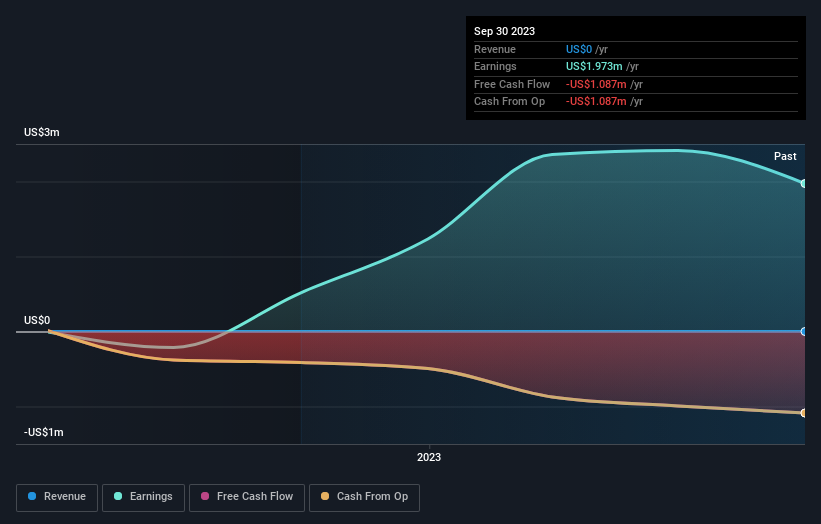Redwoods Acquisition Corp. (NASDAQ:RWOD) surges 16%; retail investors who own 42% shares profited along with insiders
Key Insights
Significant control over Redwoods Acquisition by retail investors implies that the general public has more power to influence management and governance-related decisions
A total of 7 investors have a majority stake in the company with 51% ownership
A look at the shareholders of Redwoods Acquisition Corp. (NASDAQ:RWOD) can tell us which group is most powerful. We can see that retail investors own the lion's share in the company with 42% ownership. That is, the group stands to benefit the most if the stock rises (or lose the most if there is a downturn).
Following a 16% increase in the stock price last week, retail investors profited the most, but insiders who own 37% stock also stood to gain from the increase.
Let's delve deeper into each type of owner of Redwoods Acquisition, beginning with the chart below.
See our latest analysis for Redwoods Acquisition
What Does The Institutional Ownership Tell Us About Redwoods Acquisition?
Institutions typically measure themselves against a benchmark when reporting to their own investors, so they often become more enthusiastic about a stock once it's included in a major index. We would expect most companies to have some institutions on the register, especially if they are growing.
We can see that Redwoods Acquisition does have institutional investors; and they hold a good portion of the company's stock. This suggests some credibility amongst professional investors. But we can't rely on that fact alone since institutions make bad investments sometimes, just like everyone does. When multiple institutions own a stock, there's always a risk that they are in a 'crowded trade'. When such a trade goes wrong, multiple parties may compete to sell stock fast. This risk is higher in a company without a history of growth. You can see Redwoods Acquisition's historic earnings and revenue below, but keep in mind there's always more to the story.
We note that hedge funds don't have a meaningful investment in Redwoods Acquisition. The company's largest shareholder is Gan Min, with ownership of 35%. For context, the second largest shareholder holds about 4.8% of the shares outstanding, followed by an ownership of 2.8% by the third-largest shareholder. In addition, we found that Jiande Chen, the CEO has 0.5% of the shares allocated to their name.
On further inspection, we found that more than half the company's shares are owned by the top 7 shareholders, suggesting that the interests of the larger shareholders are balanced out to an extent by the smaller ones.
Researching institutional ownership is a good way to gauge and filter a stock's expected performance. The same can be achieved by studying analyst sentiments. We're not picking up on any analyst coverage of the stock at the moment, so the company is unlikely to be widely held.
Insider Ownership Of Redwoods Acquisition
While the precise definition of an insider can be subjective, almost everyone considers board members to be insiders. Company management run the business, but the CEO will answer to the board, even if he or she is a member of it.
Insider ownership is positive when it signals leadership are thinking like the true owners of the company. However, high insider ownership can also give immense power to a small group within the company. This can be negative in some circumstances.
Our most recent data indicates that insiders own a reasonable proportion of Redwoods Acquisition Corp.. Insiders own US$40m worth of shares in the US$106m company. We would say this shows alignment with shareholders, but it is worth noting that the company is still quite small; some insiders may have founded the business. You can click here to see if those insiders have been buying or selling.
General Public Ownership
The general public, who are usually individual investors, hold a 42% stake in Redwoods Acquisition. While this size of ownership may not be enough to sway a policy decision in their favour, they can still make a collective impact on company policies.
Next Steps:
It's always worth thinking about the different groups who own shares in a company. But to understand Redwoods Acquisition better, we need to consider many other factors. For example, we've discovered 4 warning signs for Redwoods Acquisition that you should be aware of before investing here.
Of course this may not be the best stock to buy. Therefore, you may wish to see our free collection of interesting prospects boasting favorable financials.
NB: Figures in this article are calculated using data from the last twelve months, which refer to the 12-month period ending on the last date of the month the financial statement is dated. This may not be consistent with full year annual report figures.
Have feedback on this article? Concerned about the content? Get in touch with us directly. Alternatively, email editorial-team (at) simplywallst.com.
This article by Simply Wall St is general in nature. We provide commentary based on historical data and analyst forecasts only using an unbiased methodology and our articles are not intended to be financial advice. It does not constitute a recommendation to buy or sell any stock, and does not take account of your objectives, or your financial situation. We aim to bring you long-term focused analysis driven by fundamental data. Note that our analysis may not factor in the latest price-sensitive company announcements or qualitative material. Simply Wall St has no position in any stocks mentioned.


